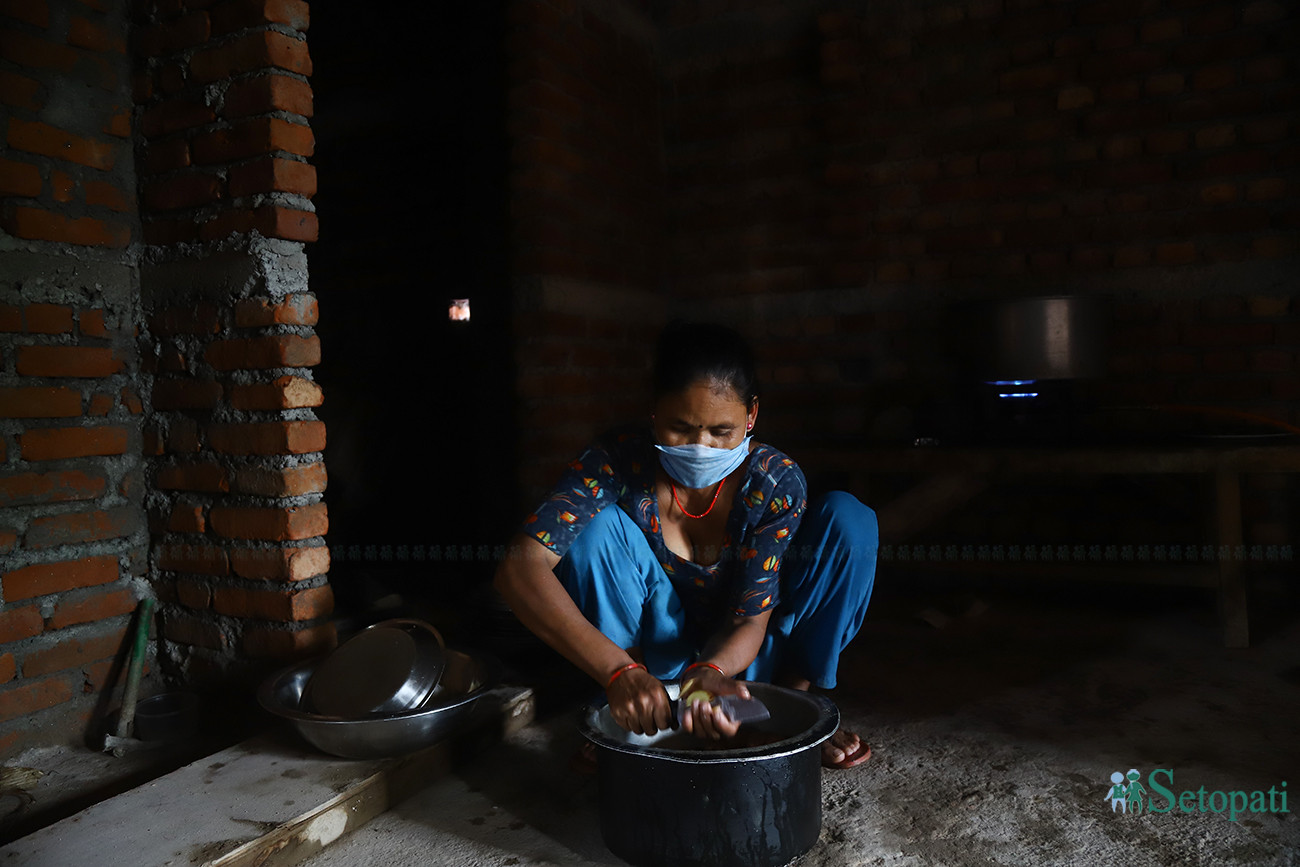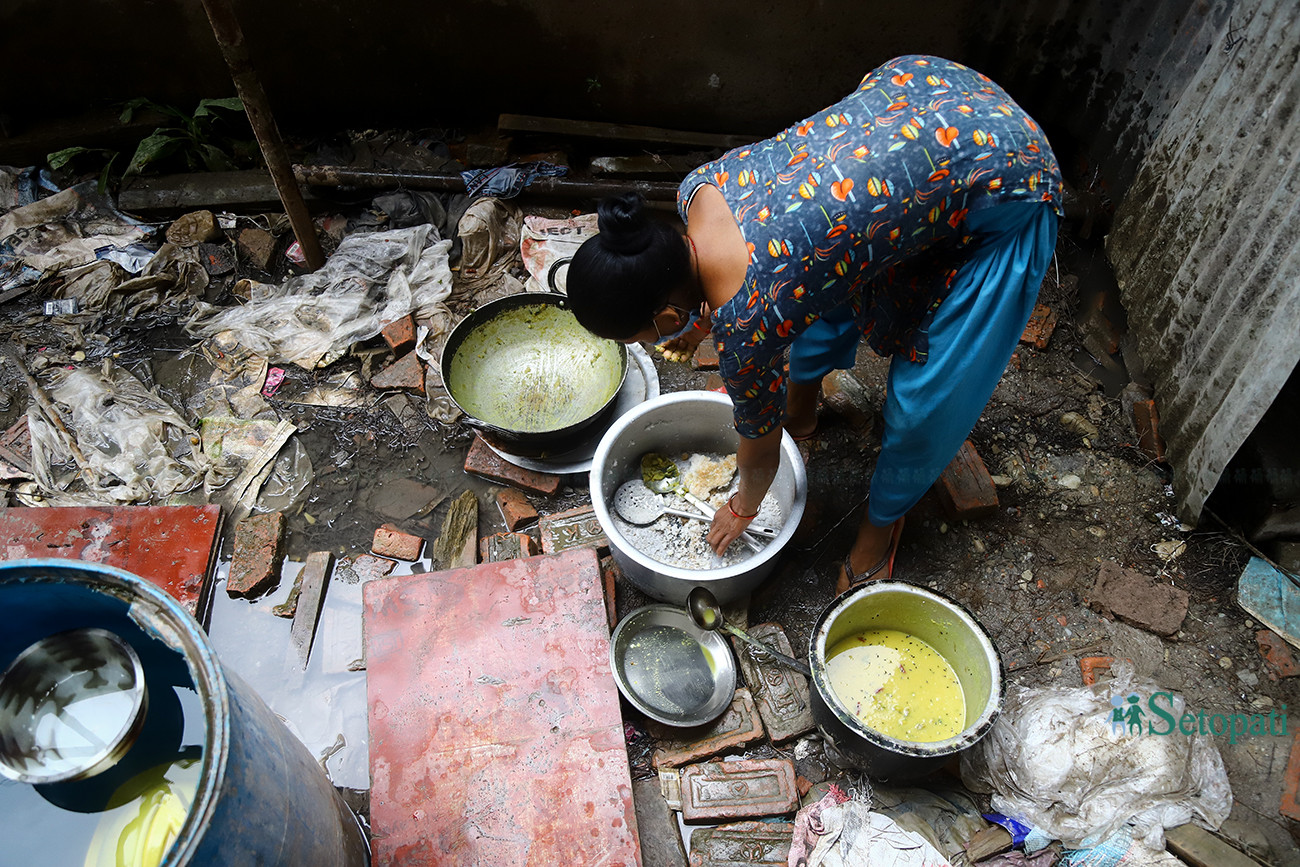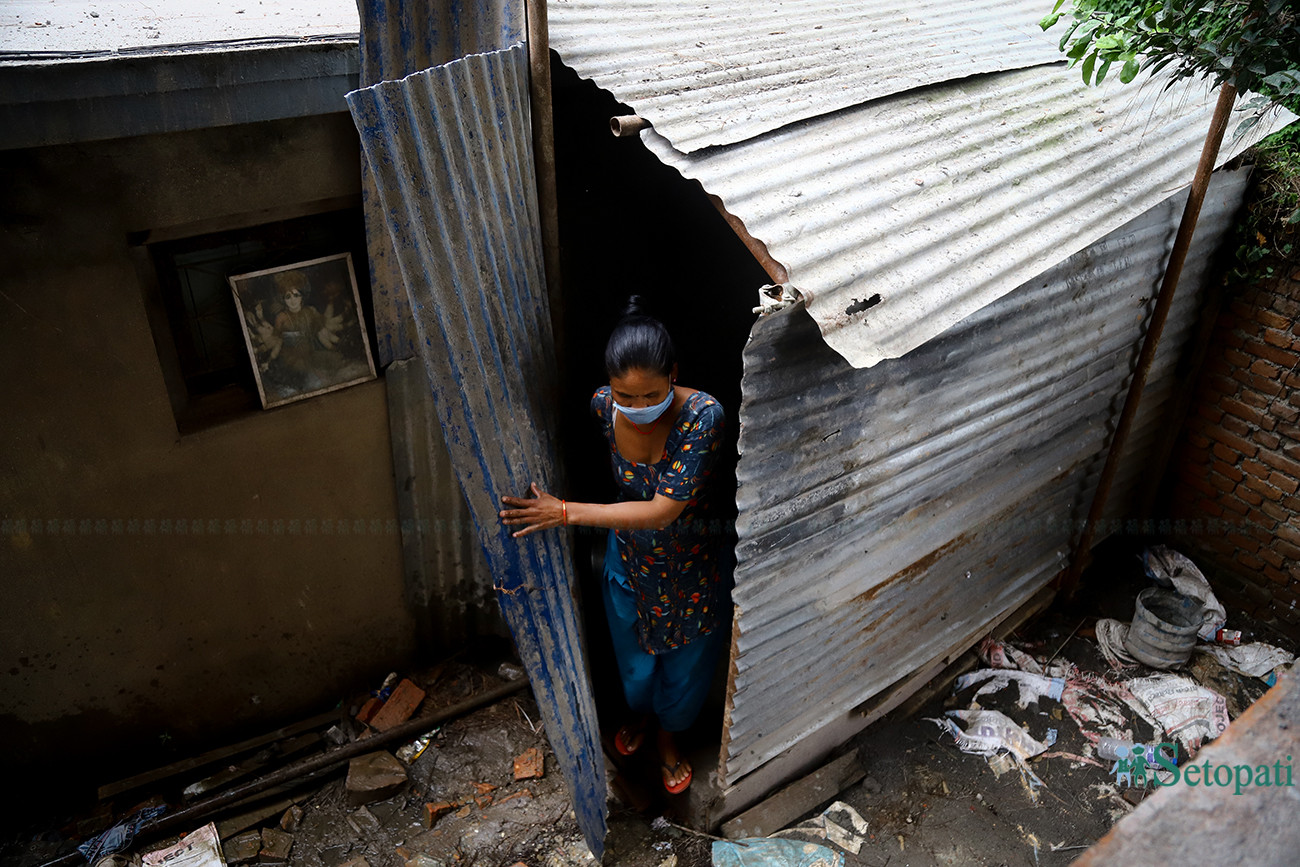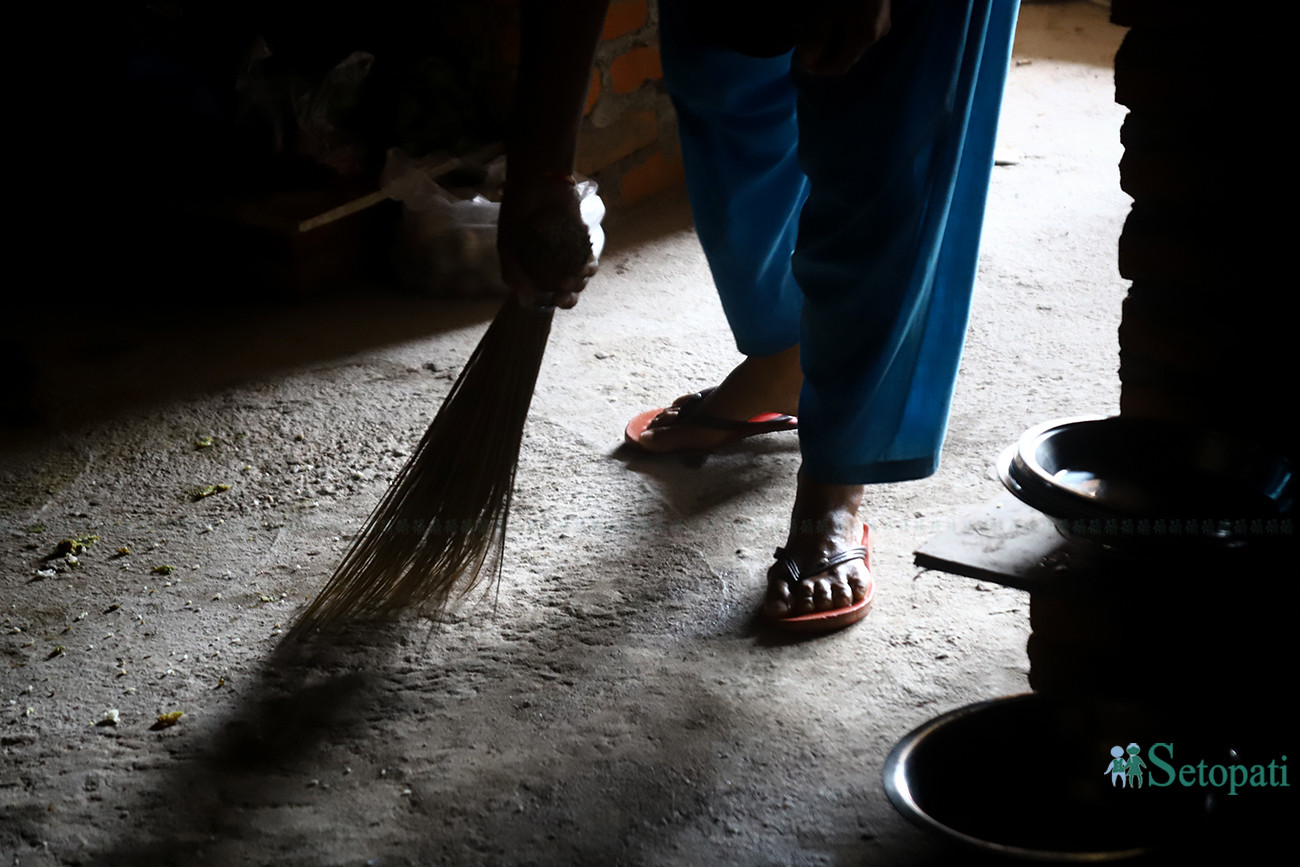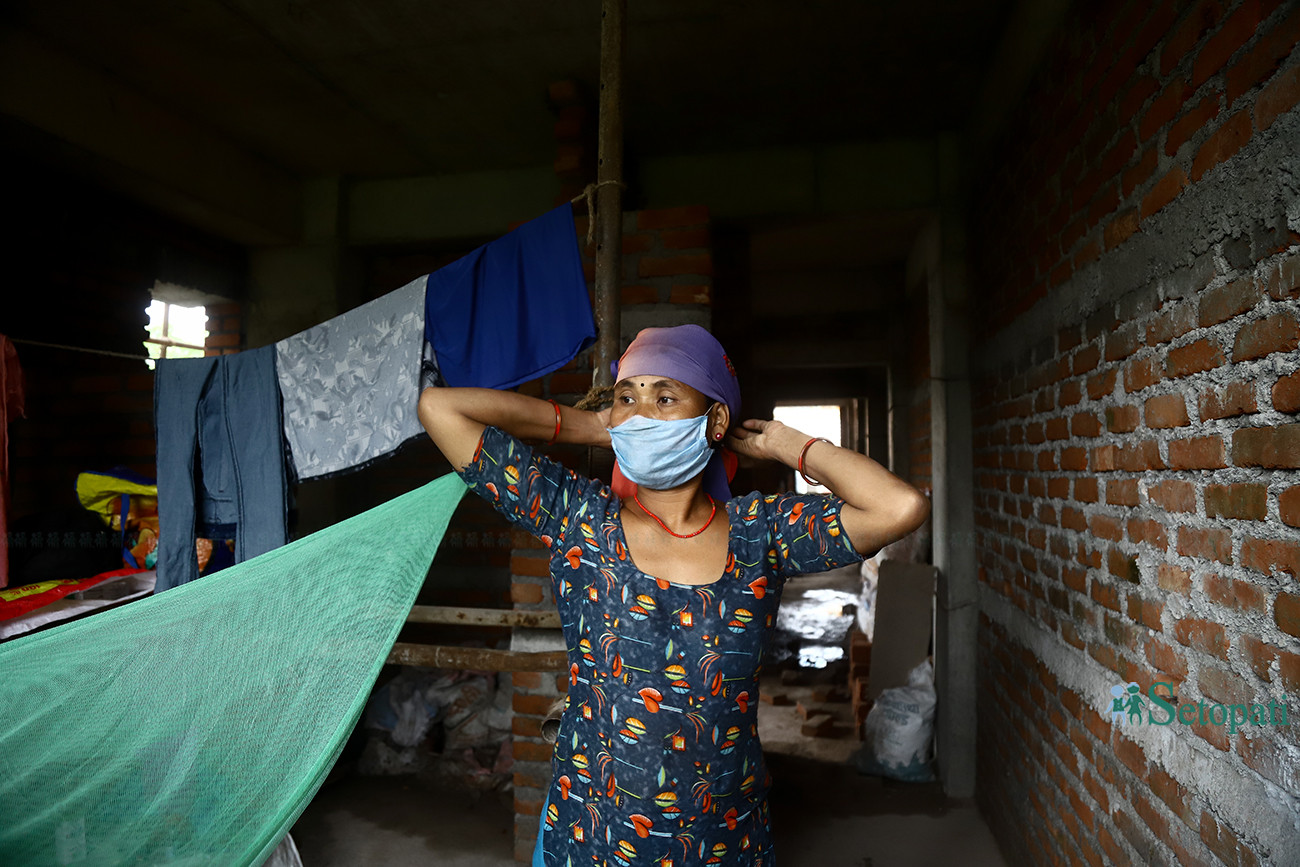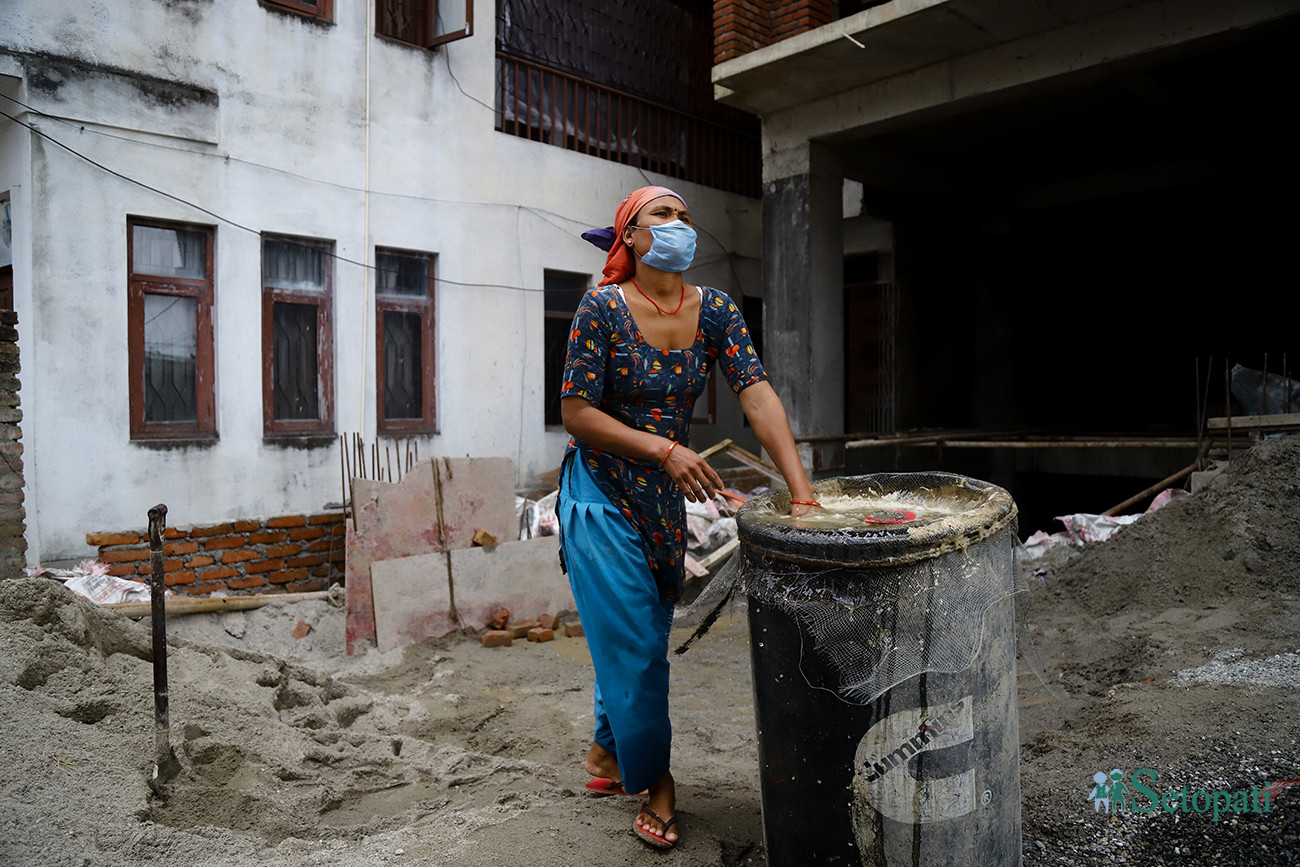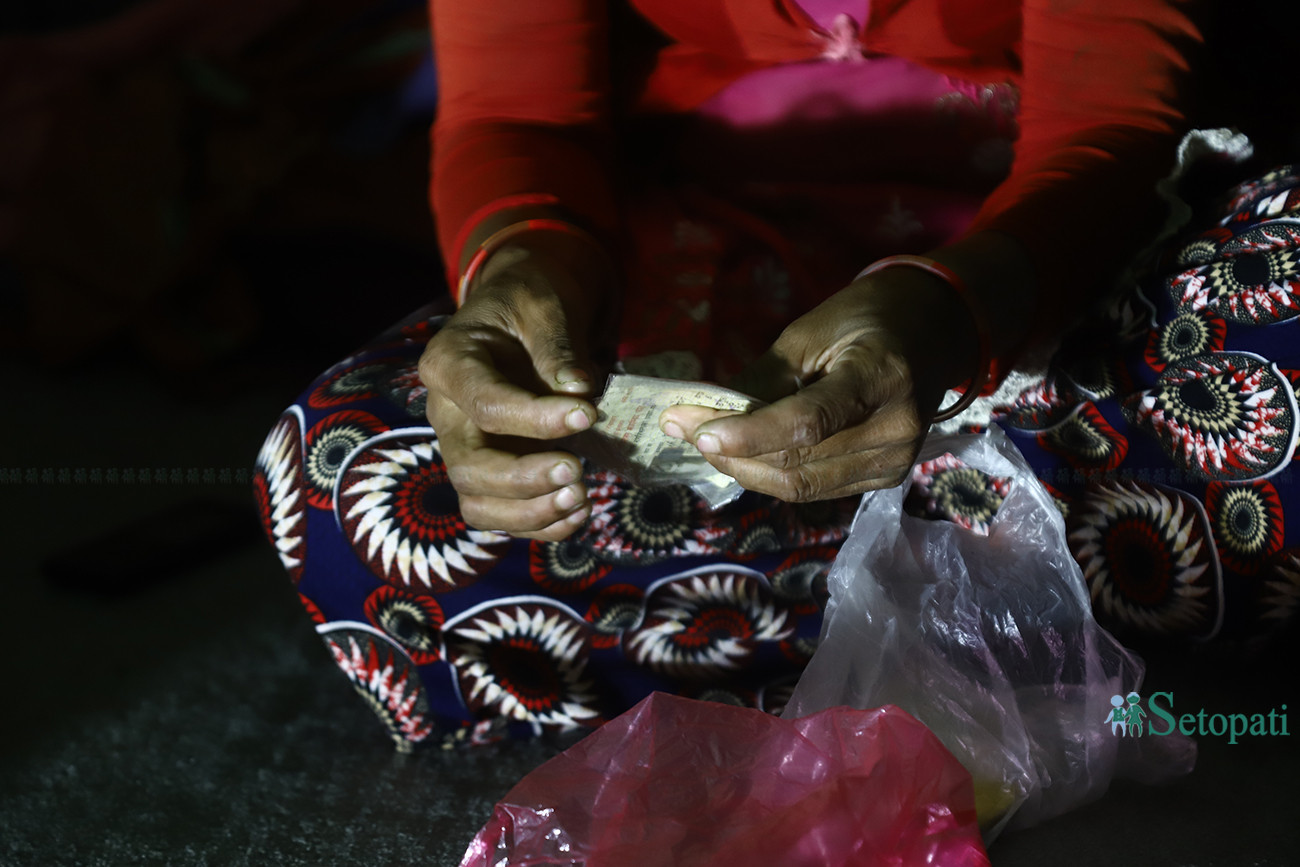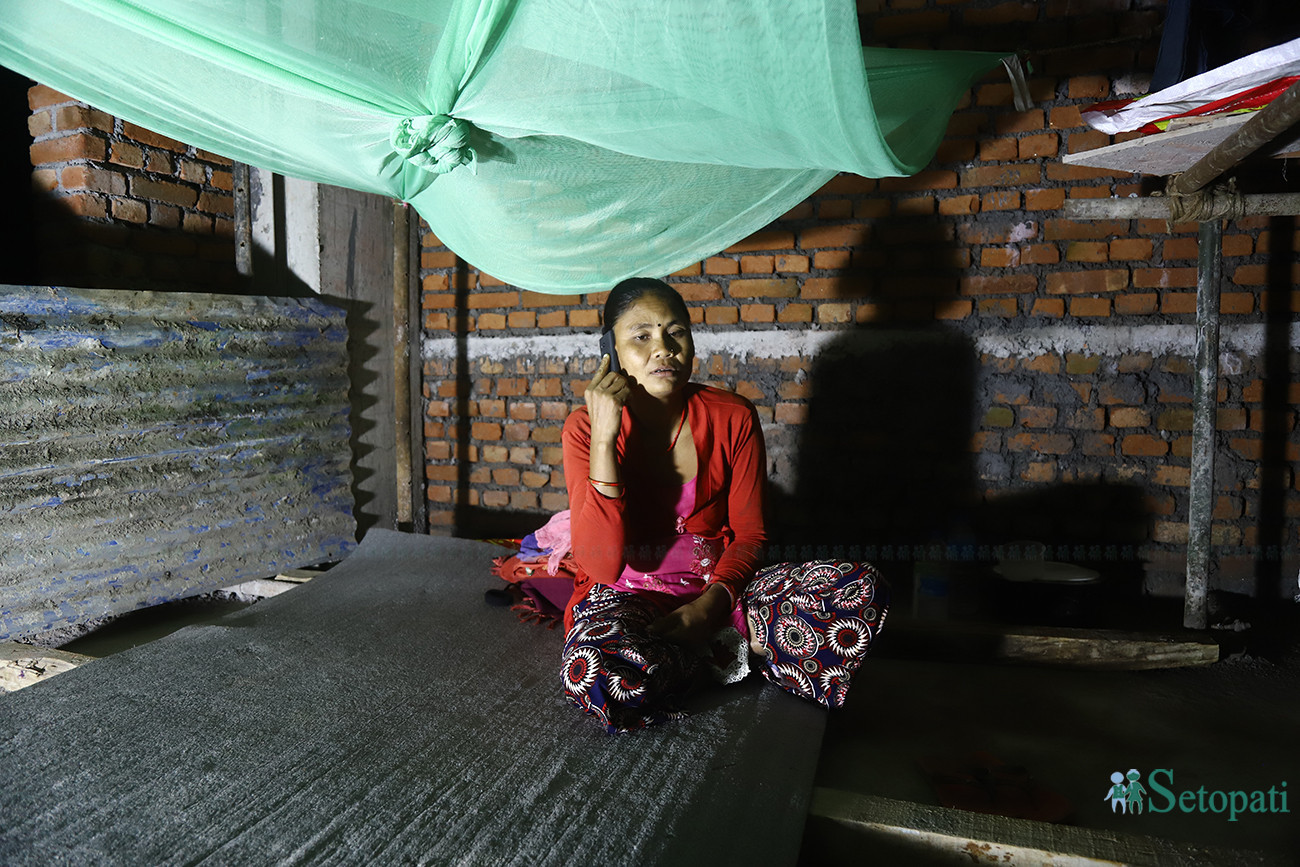Kavita Chaudhary was a housewife raising a 11-year-old daughter and a seven-year-old son in Dang before the COVID-19 pandemic.
The pandemic and the accompanying lockdown has landed the 30-year-old in the Kathmandu Valley as a laborer leaving her daughter and son in Dang. "The daughter takes care of the son and does all the chores by herself," she says.
Her husband Maniram Chaudhary is also in Kathmandu with her. They both work for daily wages in an under-construction building in Jhamsikhel, Lalitpur.
Maniram, 34, had gone to Qatar two years ago and was a laborer before going abroad. When he was in the Gulf state, she used to dream of saving money and buying a small plot of land to build their hut in.
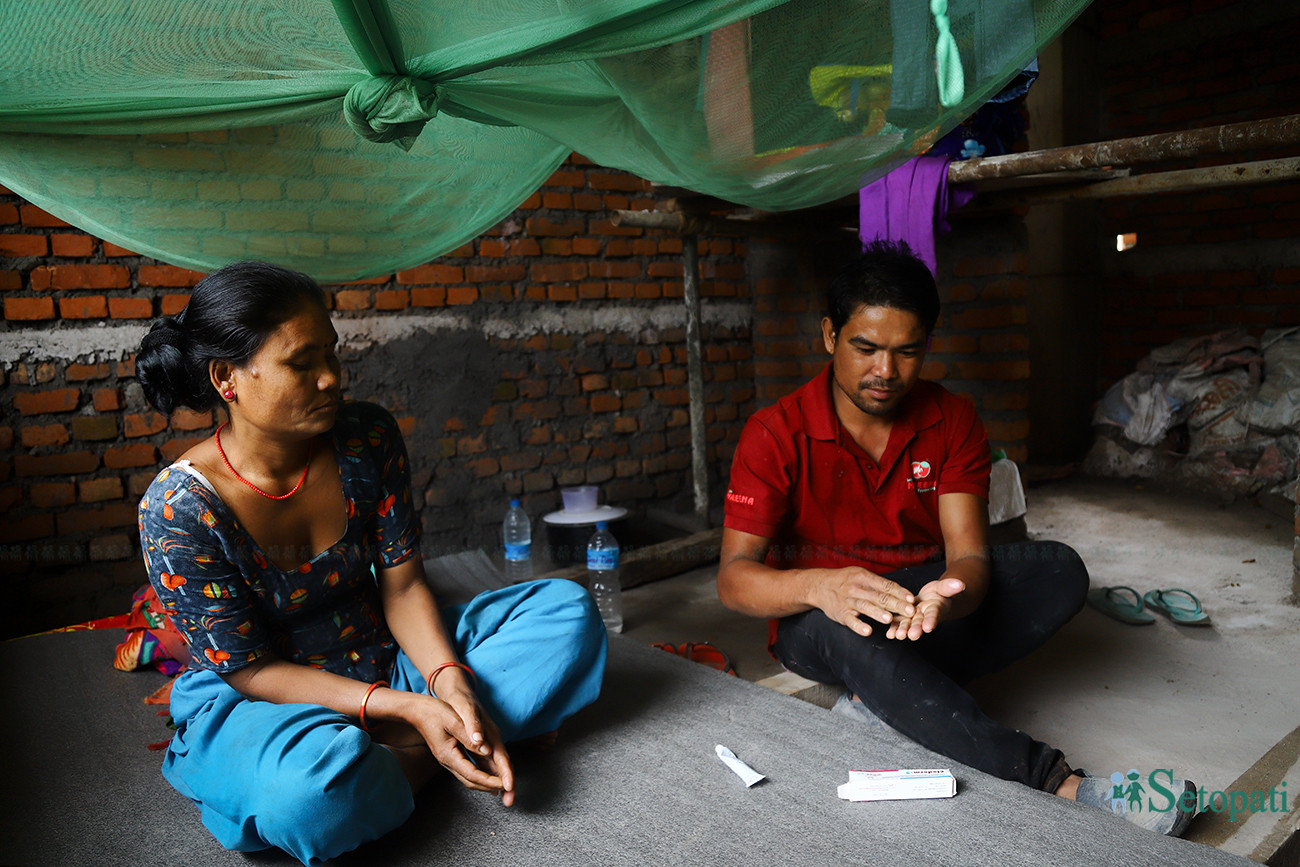
But the Qatari company didn't paid him fully and he somehow repaid the money he borrowed to go abroad after working for 18 months. He complained with the Qatari police that the company owes him around Rs 145,000 in unpaid salary but received no help.
He returned home empty-handed and their long-cherished dream slipped away from their hands.
Maniram was the sole breadwinner in the family even after returning home and the family survived on his wages for some time. And then it all took a turn for the worse. "We could not afford to pay for the children's education and food anymore," she reveals. "This unheard of corona (virus) then struck suddenly and the government started lockdown. I hadn't even heard those two words (corona and lockdown) and didn't know what those words meant."
Maniram got a call from a contractor in Lalitpur offering him Rs 700 a day when he was left jobless during the lockdown. They were worried more about dying of hunger than the disease and he accepted the work without hesitation.
Kavita decided to accompany Maniram and work instead of waiting for his wages to arrive in Dang. Maniram didn't agree at first but she convinced her husband saying they can earn and save more if both of them worked.
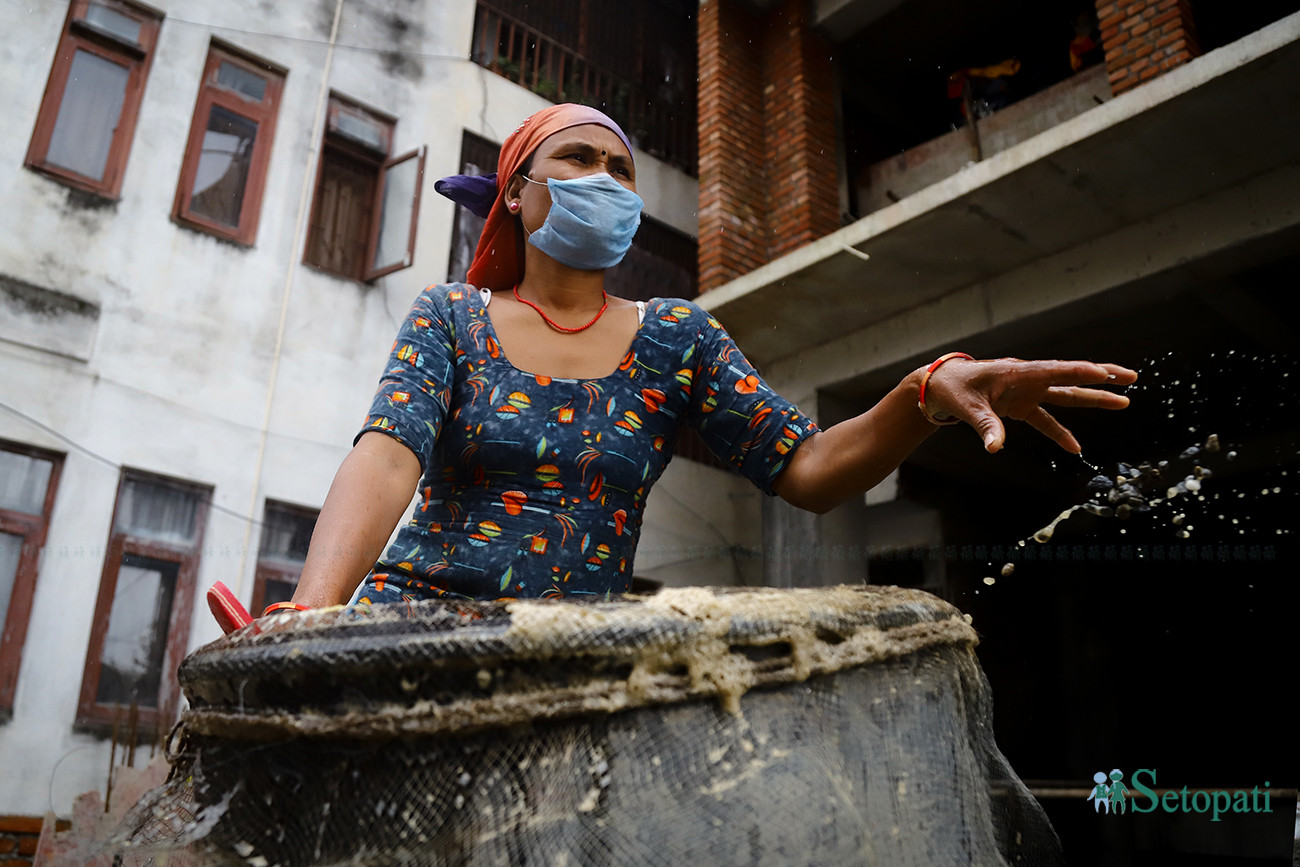
It was her first visit to Kathmandu and she had nothing to do for five days. The contractor came on the sixth day and assigned her the task of sieving and carrying sand from seven in the morning. Maniram works as a plasterer.
"I felt dizzy carrying the heavy load of sand upstairs on the first day," she reminisces. "I then remembered my children to draw energy for work."
She also cooks for 15-16 people in the morning and evening but doesn't gets paid extra.
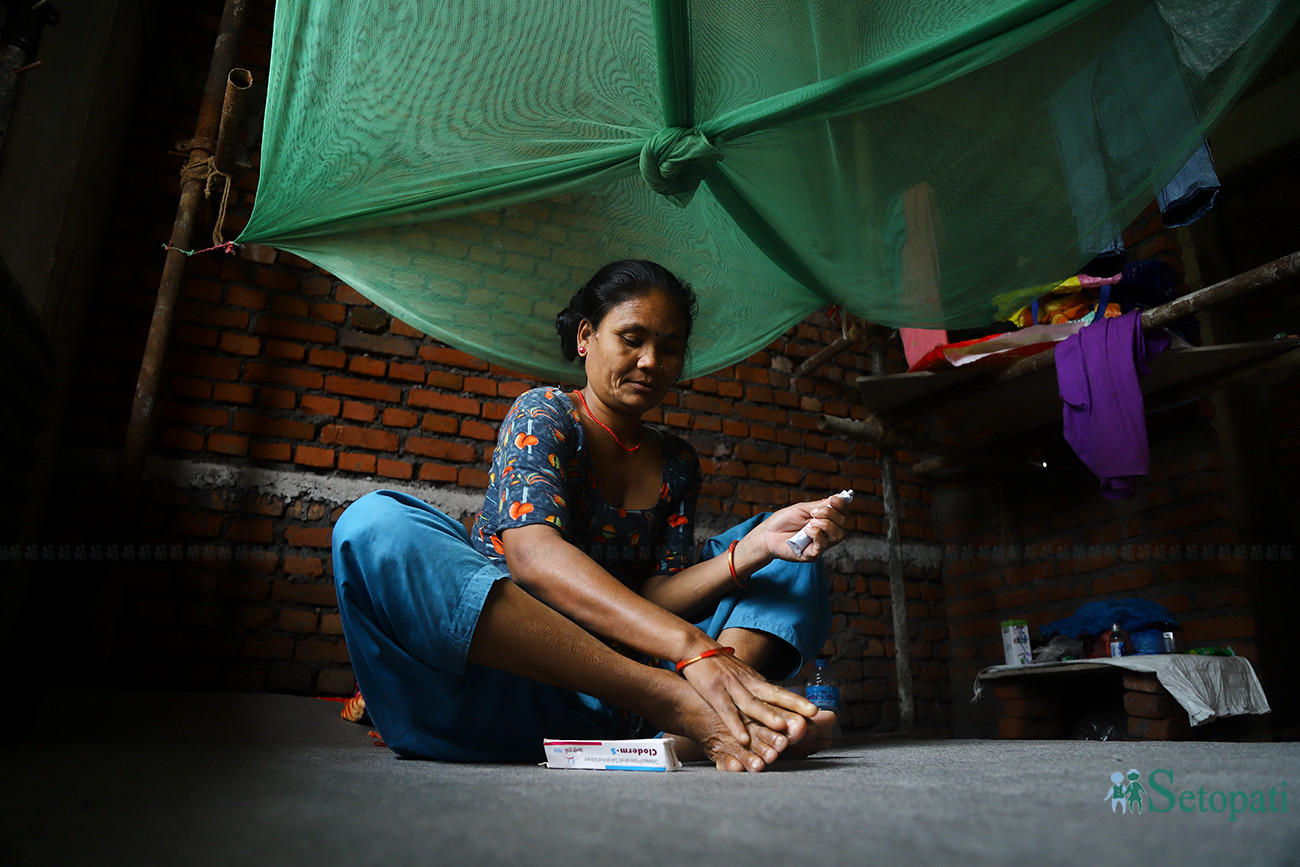
She tries to call her daughter everyday and asks about their well-being. But her phone sometimes runs out of balance and it takes a few days to recharge. Her daughter always asks when they will be back home and they all can dine together.
Her heart sinks every time she hears her daughter and son.
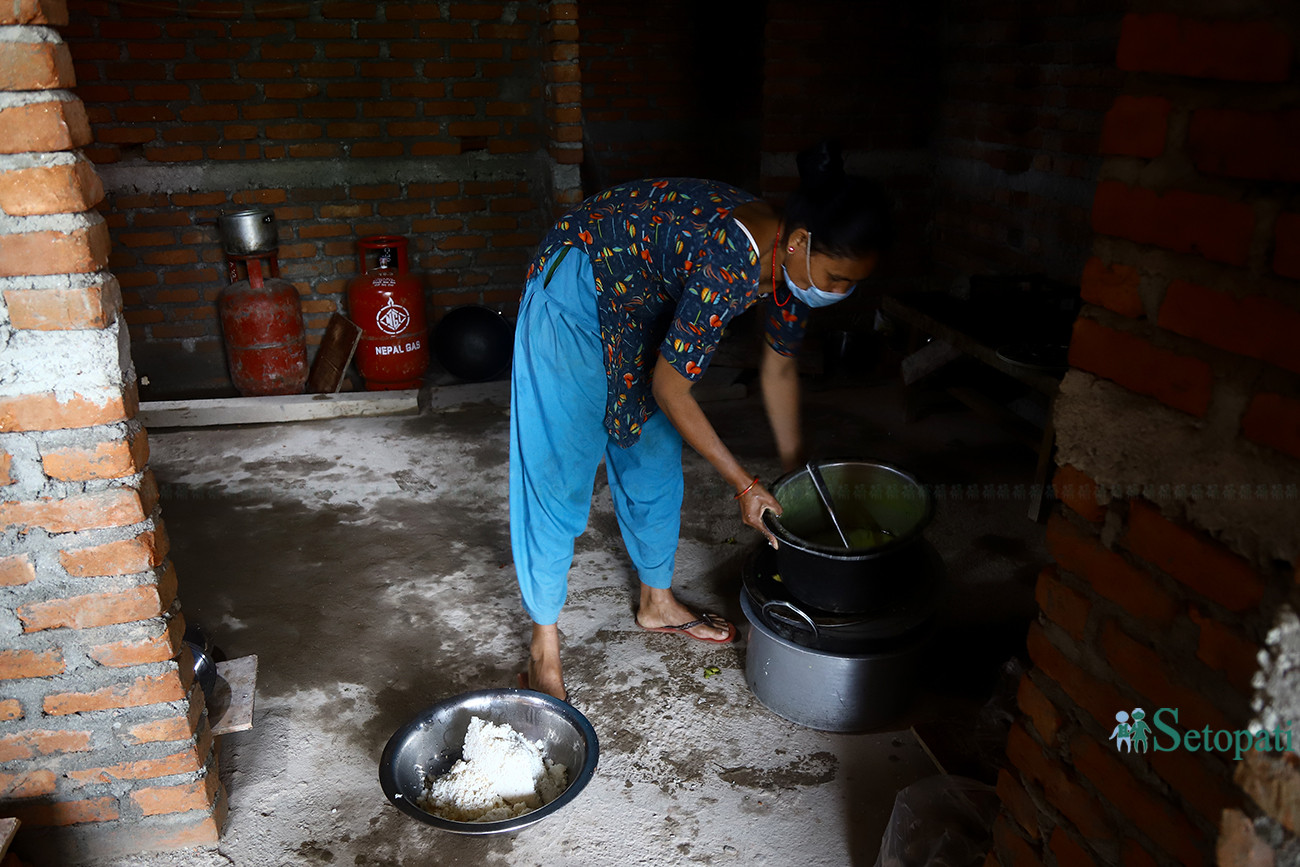
She lies down on a mat spread over a plywood with a heavy heart and aching body every night and tries to sleep to be ready for another day.
She doesn’t like Kathmandu and just wants to go back to her daughter and son with enough money to celebrate this Dashain.
